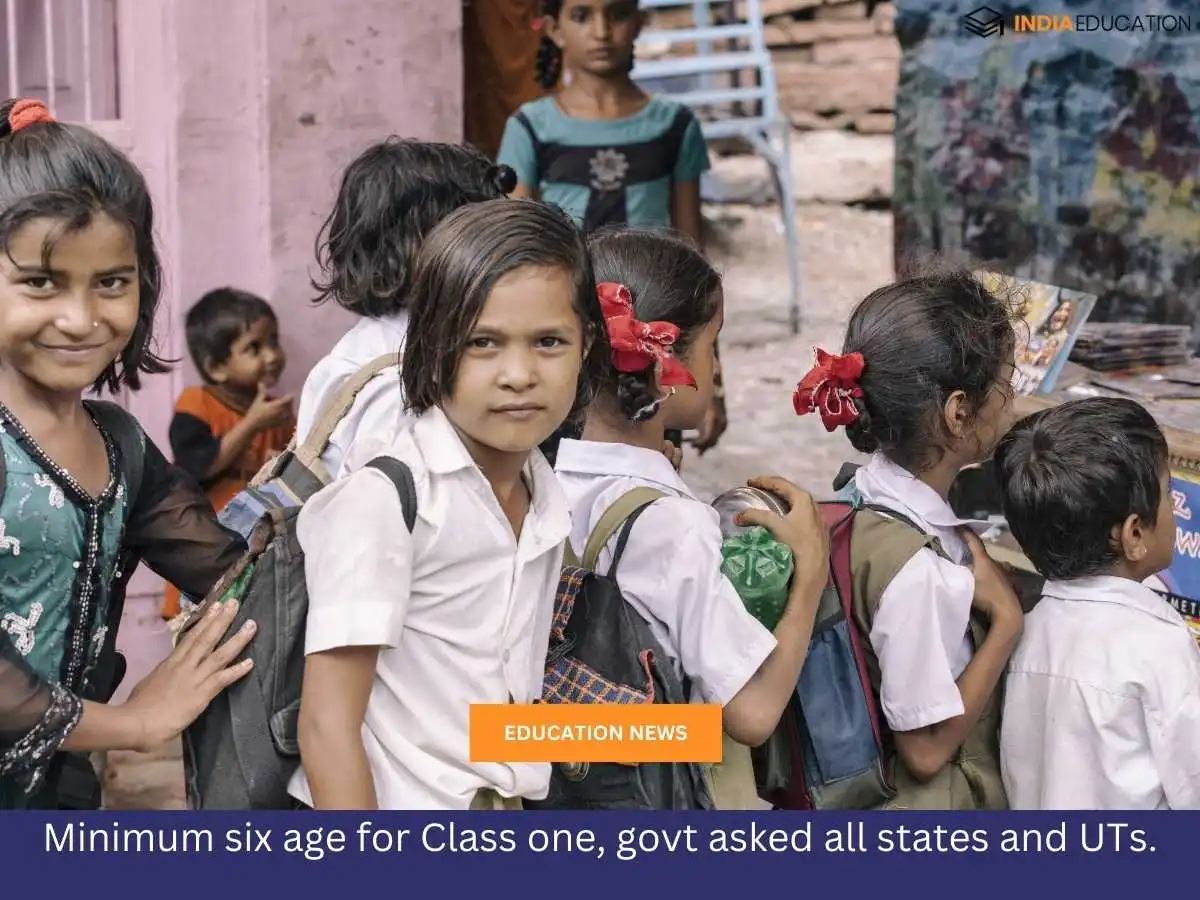Minimum six age for Class one, govt asked all states and UTs.
-
Rakshita Agarwal
- Updated: February 24, 2023
- IST: 4:06 pm
The Ministry of education asked all states and UTs to make minimum six age for class one admission. Under the new structure, children aged 3 to 8 years come under the foundational section — including three years of preschool and two years of primary school

The Centre’s reminder is consistent with the most recent National Education Policy, which places a focus on strengthening foundational learning by bringing early childhood care and education under the purview of the formal schooling system and shifting it from the Ministry of Women and Child Development to the Education Ministry.
Children between the ages of 3 and 6 were not included in the 10+2 official schooling structure prior to the NEP 2020. The foundational component of the new structure, which includes three years of preschool and two years of primary school for pupils aged 3 to 8, is followed by preparatory, middle, and secondary sections in a 5+3+3+4 formula. The NEP states that the strong foundation of early education beginning at age 3 “aims to promote greater overall learning, development, and well-being.”
Quality preschool needed’
Considering their psychological and emotional health, the Supreme Court stated last year that young children shouldn’t be sent to school. According to MoE authorities, the availability of qualified instructors who are properly trained in the age- and developmentally-appropriate curriculum and pedagogy is the most crucial component at the foundational stage. Also, the ministry has recommended that states start the process of creating and administering a two-year diploma in preschool education (DPSE) program within their respective jurisdictions. The State Council of Educational Research and Training (SCERT), he stated, “is supposed to develop the course, and it is anticipated to be administered or executed by District Institutes of Education and Training (DIETs) under the supervision and management of SCERTs.”
Parents and educators have praised the choice because they think it will ease the pressure youngsters feel to perform well in school. The new regulation will lessen the academic burden on pupils, according to Paramita Gautam, president of the Delhi Parents Association. From now on, Gautam said PTI, kids won’t just be interested in academic information. “The pressure of their schoolwork won’t be an issue either. We appreciate the initiative taken and think this new policy was written well. The National Education Policy (NEP), which is currently being implemented, has been greatly anticipated.”
More Education News
About the Author

December Edition Magazine
Subscribe to IndiaEducation
Get your daily latest education news.